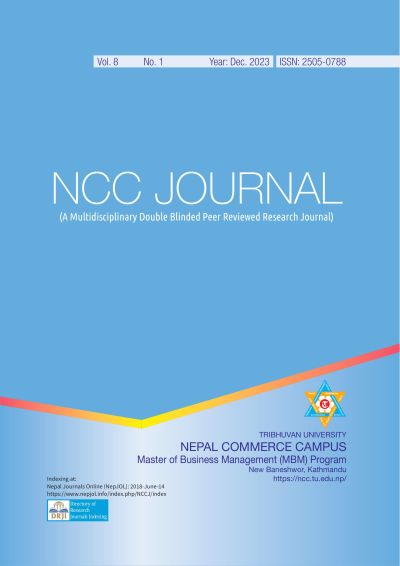Assessment of Receivable Management on the Financial Performance of NEA
DOI:
https://doi.org/10.3126/nccj.v8i1.63152Keywords:
Return on assets, receivable collection period, net sales to account receivable, account receivable to total assetsAbstract
This research examined the influence of effective management of receivables on the financial performance of the Nepal Electricity Authority (NEA), the sole electricity supplier in the country, with a specific emphasis on how effective receivables management influences its profitability. Within challenges such as seasonal power output adjustment and increasing unpaid dues, this research emphasizes the need for effective management of receivables for the enterprise's financial sustainability. This study uses multiple regression analysis of annual data from 2013 to 2022 to look into the connection between NEA's return on assets and important receivable management variables, namely the receivable collection period, the ratio of net sales to accounts receivable, and the ratio of accounts receivable to total assets. The study findings reveal a negative relationship between the receivable collection period and return on assets, whereas positive associations exist between the account receivable turnover ratio and the account receivable to total assets ratio. This suggests that NEA can enhance its financial performance by improving billing and collection procedures and efficiently managing accounts receivable. It is concluded that the NEA should regularly monitor receivable collection and management practices to ensure the financial well-being of the enterprise.
Downloads
Downloads
Published
How to Cite
Issue
Section
License
© Nepal Commerce Campus, Tribhuvan University
CC BY-NC: This license enables reusers to distribute, remix, adapt, and build upon the material in any medium or format for noncommercial purposes only, and only so long as attribution is given to the creator.




